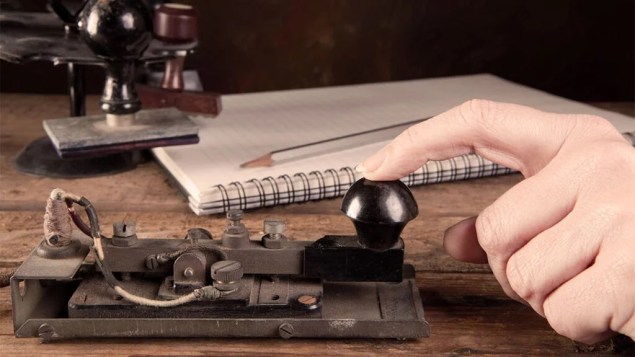
History of Morse Code Day
April 27 is Morse Code Day, and it’s to honor its creator, Samuel Morse, who was born on April 27, 1791. The inventor played a part in developing the electric telegraph, and over it, Mr. Morse created the Morse code in 1987.
The code was first commercially used in 1844, and it was adapted to the era’s new radio communication systems. People could communicate instantly across long distances for the first time.The Morse code might be over a century old, but it’s still used in radio communications, navigation, and many other multiple areas; it’s even a way for people with mobility problems to communicate. To this day, the famous three dots, three dashes and three dots, meaning SOS, have saved countless lives in all scenarios. Learning a few words in Morse can be the difference between returning home to safety and not surviving dangerous situations.
Did You Know?
SOS signals were often sent in morse code. While SOS had no specific translation, it was said to mean “save our souls” or “save our ship”.
Antenna
Improved EU1KY Antenna Analyzer CEC V0.3
In this video, not include have a voice, but I placed subtitles on important parts. Please turn on subtitles. Read more
Yaesu Antenna Rotators G 450A
G-450A Specifications Power Supply Voltage: 117 VAC, 50-60 Hz Power Supply Current Consumption: 0.5 Amps Rotor Voltage: 24 VAC Cable Conductors… Read more
RadioWavz Sentinel Hex Beam antenna set up in 30 min [ Video ]
Radiowavz has made a time lapse video of setting up their new line of hex beam See more: Read more
DX Commander All Band Vertical after 6 Months in the Air | Review
“I’ve had my DX Commander All Band vertical in the air for about 6 months now and I wanted to show how the antenna has faired over the Aus… Read more
THE COKE LOOP Antenna by PY1AHD
“The Coke Loop is a Small Magnetic Loop Antenna tuned by a trombone-style variable capacitor made with standard soda cans. In Brazil we… Read more
Review
Grounding When Portable
Curt, KB9JQU, has a newer question around the topic of grounding. He is wondering how are you to ground when you are doing portable operations? Read more
PicoAPRS with GPS receiver
“Worlds smallest APRS transceiver with TNC” offers many applications. Matchbox-sized, built-in GPS receiver. The transceiver can not only… Read more
ASSEMBLY “N” CONNECTOR FOR ULTRAFLEX 13 MKII 720p
“N” type connector assembly instructions Read more
ICOM IC-7610 First Details from Waters & Stanton
First details of the ICOM IC-7610 IC-7610 HF/50MHz Transceiver (Base Station) The IC-7610 is the successor to the IC-7600 and will be a dual-watch cap… Read more
Equipment
XPA125B 125W Solid State Linear Amplifier
Xiegu XPA125B is a small and lightweight 125 watt HF and 50 MHz solid state linear power amplifier perfect for your QRP radio or low power SDR… Read more
QDX digital transceiver
I brief description of a construction problem, symptoms and solution regarding the QDX digital transceiver from QRP Labs. The “QCX+” (QRP… Read more
Andromeda 100W Transceiver -Apache Labs
Sneak peek at the Andromeda 100W Transceiver…… 10th GEN Intel 6 Core i7, 7 inch built in touch screen and an option to add up to two Exter… Read more
EB104 HF Power Amplifier – 2,4KW water cooling system 5″ LCD touch screen for N0JSN
HF/6m linear amplifier 2400W MRF1K50H 2 pcs water cooling system 5″ LCD touch screen for N0JSN Read more
ACOM 1010 160-10m amplifier
FEATURES Easy operation. The plate-load True Resistance Indicator (TRI) is an ACOM innovation that provides quick and precise tuning, typically… Read more
The post Morse Code Day appeared first on QRZ NOW – Ham Radio News.





![RadioWavz Sentinel Hex Beam antenna set up in 30 min [ Video ]](https://i0.wp.com/www.nerfd.net/wp-content/uploads/2022/04/hex_beam-265x168-1.jpg?w=635&ssl=1)











